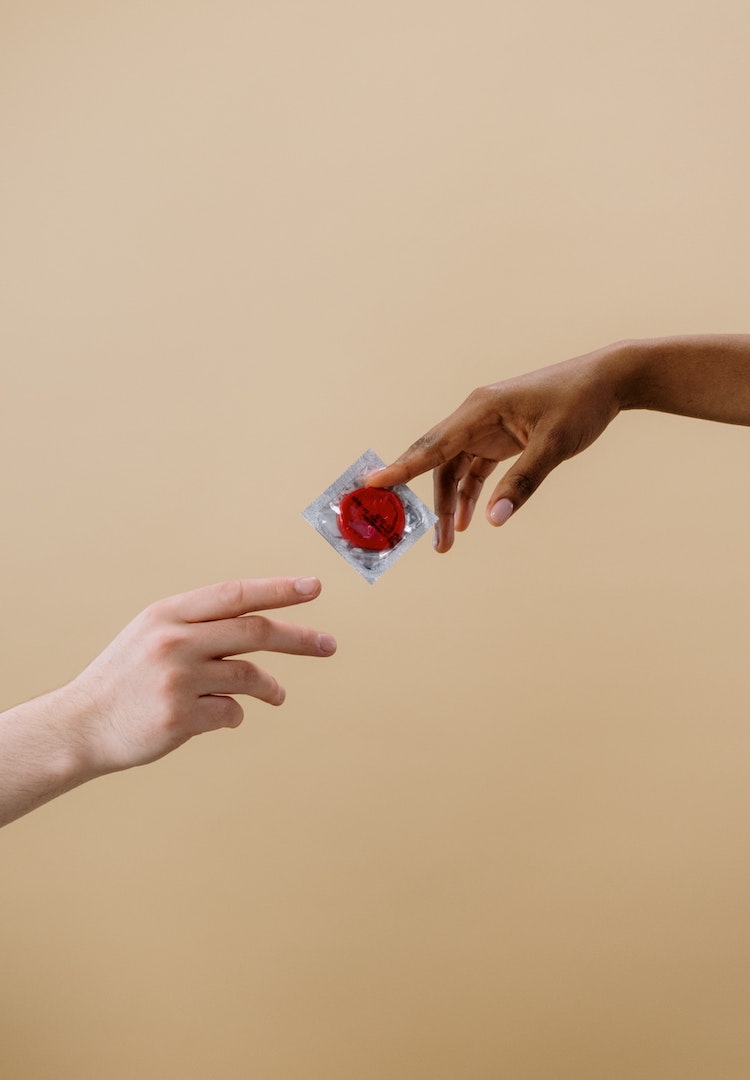Can emotions make my IBS flare up? I asked two doctors
WORDS BY CAT FORSYTH
“The brain is always talking to the gut.”
If you’ve ever read my articles before, chances are you’ve read about my struggles with irritable bowl syndrome (IBS). For some reason, I kind of love talking about it. I don’t tend to go on about it so much in person, but when it comes to writing, I can’t stop talking about it (call it verbal diarrhoea that describes actual diarrhoea).
It’s a big part of my life. I deal with the practicalities of it every day, whether that’s popping my anti-spasm pills three times a day or pulling over on the side of the road to run into a cafe and (with much embarrassment) ask to use the bathroom. I think I just don’t want to be ashamed of what’s going on with my body. Previously, I’d always found ‘bathroom talk’ really humiliating. I felt it was something that should be kept private – until things got really bad with my own stomach.
For more wellness advice, head on over to our Health section.
I found that keeping everything hidden due to embarrassment actually made my symptoms worse. When I finally started sharing my struggles, I felt so much better. I had DMs on Instagram from both friends of mine and readers of Fashion Journal thanking me for writing so frankly, with some even sharing their own embarrassing stomach-problem stories.
It was the abundance of DMs I received that made me realise that I was onto something. Stomach problems are not new to us as people, nor are they unique to me as an individual. I decided I wanted to slowly start breaking down the embarrassment that surrounds gut disorders. I was already very aware that my stress was highly related to my stomach problems. Every public speech at school was preceded by vomit in the school bathrooms and my anxiety guaranteed constant bouts of diarrhoea.
When dealing with my own IBS, I’ve been told time and time again I just need to ‘work on my stress’, which only serves to make me feel like I’m going crazy. I decided to talk to an expert to find out how stomach issues are affected by our mental health, and to see what can be done about it.
I ended up speaking to two experts to get some different ideas flowing. Firstly, I talked to Dr Ilana Gory, a gastroenterologist and Director at Gastroenterology Specialists Melbourne. I also spoke to Dr Jim Kantidakis, a clinical psychologist and gut-directed hypnotherapist, who is the founder of The Gut Centre.
First of all, what is the mind-gut connection? Can you explain this a bit?
Ilana: The brain is very powerful at causing physical symptoms. So when people get anxious or stressed, they can get sweaty palms, they can feel their heart racing. And that’s true as well for the gut and the brain. A good example of it is when people get really nervous before an exam or before a date — they can get nervous diarrhoea. That’s just a common example of the gut-brain axis in an acute episode.
Jim: Well, I think it’s a very important connection that is under-recognised. There’s a lot that we know and there’s a lot that we don’t know. What we do know though is that the communication between brain and gut is bidirectional. The brain is the central nervous system, [and] the gut is the enteric nervous system. The two are connected by the vagus nerve. Amazing communication happens between the two [with] the vagus nerve being the main nerve.
Do you think that stress can affect or inflame stomach issues?
I: When people are chronically stressed or a little bit worried or anxious all the time… chronic stress on the gut can cause IBS. So the brain is always talking to the gut. You don’t know what’s happening. It’s all in your subconscious… you’re not thinking about that. That’s always happening on the vagus nerve.
The vagus nerve is also what carries your parasympathetic and sympathetic pathways. The sympathetic pathway is your fight or flight, and the parasympathetic pathway we call ‘rest and digest’. So when you’re relaxed, you’re sending lots of blood to your gut and everything’s working well.
And when you’re stressed and your sympathetic pathway is activated, you are getting ready to fight. So you’re moving all the blood away from the gut and you’re activating your muscles and heart and getting everything ready to fight. And that’s why when people are stressed, they often have poor digestion, whether that’s diarrhoea, constipation, bloating or pain.
What steps would you recommend if I’m trying to improve my gut health as someone with a gut disorder?
I: Gut health is multifactorial, there are a lot of things that impact the gut. So the gut-brain access is one. The food you’re eating, and your microbiome. We know that exercise is really good for your gut. Sort of generally eating well, healthily. I think in terms of food, we know that having a diverse diet with lots of things is better than cutting things out.
We know that being on really restrictive, long-term diets actually decreases the diversity of your microbiome… that’s not a good thing. So we want people to eat a balanced diet with lots of different things in it… the biggest thing is, you can take antidepressants or see a psychologist and [work on] decreasing your anxiety and stress.
But in terms of the best thing for your gut-brain axis, there’s actually a therapy called gut-directed hypnotherapy. It’s the biggest thing we have in IBS at the moment… at a subconscious level, it retrains your brain when you get stressed not to have a gut symptom. And it works – the clinical trial [shows that] it works in about 60 to 80 per cent of patients.
J: There are four main sorts of psychological treatments. One is gut-directed hypnotherapy – that’s getting a lot more attention and awareness now. When I started this 16 years ago, no one else in Australia was doing it. Now, there’s a lot more awareness [among] doctors prescribing it.
There’s cognitive behavioural therapy, which has been shown to be effective. [It works by] managing distressing thoughts and behaviours that contribute to the maintenance of the problem. [For] patients that are anxious about the gut, that stress increases the [stomach] sensitivity. And again, they’re caught up in this loop.
The other one is mindfulness-based therapy. That includes techniques for meditation, but looking at symptoms and distress without judgement. Mindfulness is about being present and [helps] reduce the [effects of the] sympathetic nervous system, which is that fight-or-flight response.
There’s also another one, which is what we’re doing, which is… gastrointestinal yoga (GI yoga). There’s quite a lot of research to show that GI yoga combined with psychological therapies actually reduces the symptom severity and stresses associated with IBS.
And finally, the other one is what we call psychodynamics – that’s pretty helpful for people that have had trauma histories. [For] someone who has PTSD, that trauma is basically having that patient live in a heightened state of stress. So in working through the trauma, they’re reducing that autonomic arousal (that flight, flight or freeze response).
I often feel a flare-up of my IBS coming on when I’m more overwhelmed and anxious. How can I look after my tummy when I’m stressed?
I: So for example, for hypnotherapy, you go back to the app or you go back to your hypnotherapist and they [can] do booster sessions. [Also] acknowledging your feelings, feeling your anxiety, just listening to your body, having good sleep. All of those things are also really important.
J: People think just because they’re referred to, say psychologists… we think it’s all in their head. It’s not all in their head. It’s a physical condition… a miscommunication of signalling and communication between the brain and the gut. It’s a sensitive gut and it’s also a sensitive brain. But it’s still physical and the psychological therapies help.
For more on managing IBS and stress, head here.













